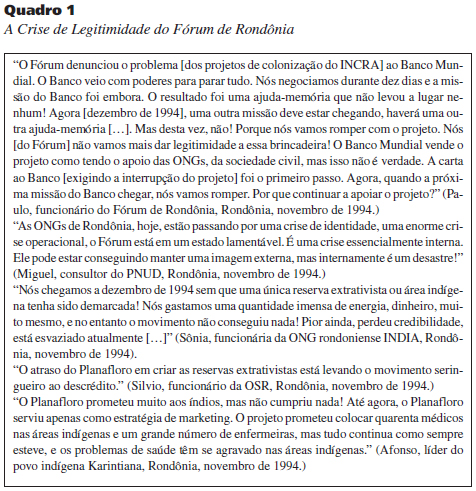The Planafloro project, funded by the World Bank in Rondônia during the nineties had as its main objective the management of the state's natural resources. The lack of capacity and of political will of implementing agencies eventually led Rondonian civil society organizations to request the investigation of Planafloro by the Inspection Panel. The panel is an accountability mechanism of the global civil society that oversees certain policies and procedures by the World Bank. The strategies that climaxed in the request for investigation of Planafloro unfolded in a context of social and environmental activism orchestrated by a transnational public advocacy network. The dominant assumption in the literature is that the participation of local groups in transnational advocacy networks contributes to a relative increase of their political capacity. The case of Planafloro reveals that local groups' participation in transnational networks, while increasing their political weight, entails new responsibilities and challenges that they are not always ready to shoulder. In the long term, this fragility may compromise political gains.
Inspection Panel; World Bank; Transnational Network; Planafloro



